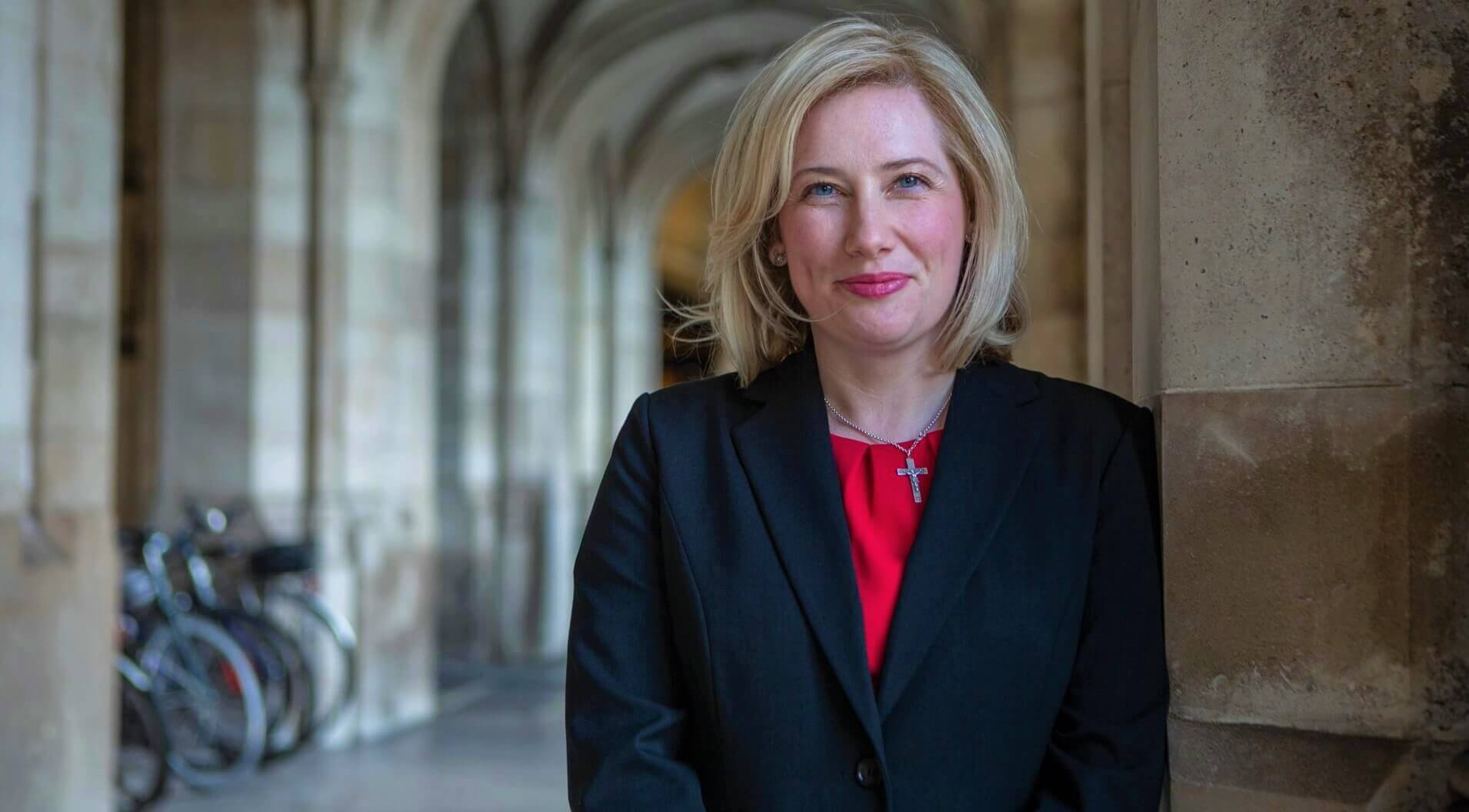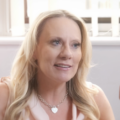
Do you tell people whom you meet that you are a social worker?
- Sometimes - it depends on the circumstances (46%, 228 Votes)
- Yes, I say it with pride (43%, 214 Votes)
- No, I worry about people's reactions (12%, 59 Votes)
Total Voters: 501
By Gemma Balmford
Prior to being elected as the first female MP for South Shields in 2013, Emma Lewell-Buck was a child protection social worker. She saw first-hand the reality of frontline social work and the detrimental effect of poverty – particularly in the North East. Here, she tells Community Care how she fell into social work and why it’s one of the things she’s most proud of in her life.
 Community Care’s Choose Social Work campaign will champion the brilliant work social workers do every day, inspire the next generation of practitioners, and counteract the negative media coverage of the profession.
Community Care’s Choose Social Work campaign will champion the brilliant work social workers do every day, inspire the next generation of practitioners, and counteract the negative media coverage of the profession.
Read about why we’re launching this campaign, and the five steps you can take to support it.
What inspired you to become a social worker?
My story’s a bit unusual compared to some people’s. I’d had loads and loads of different jobs; I’d done all kinds of different things. I thought, I like working with people, so I applied to do the master’s degree in social work at Durham. I went into it thinking I would want to work in adults’, but at the end of my master’s all the vacancies were in children’[s]. I ended up absolutely loving it and had clearly made the right choice to work in children’s. It wasn’t something where I thought, my whole life, I’m going to be a social worker. It was almost by accident I fell into it at each step of the way. But once I was in it, I really loved it.
What was your proudest achievement?
I think that was my job, and that was something I did, day in day out. I was proud to say I am a social worker.
I think social workers get so battered and beaten, both by the people you’re working with and by the public in general. You’d go into a court room sometimes with a case and, because you’re so ground down, a lot of social workers used to say it made them feel like they’re the ones on the back foot. I used to stand there proud and think, I am the only person in this room who actually knows this family inside and out. I am the expert in this room. I am the one who knows what these children are saying they want, and what needs to happen to keep them safe. I used to feel proud doing that because I was standing up for my profession.
“Every minute of every day, there’s a social worker somewhere, be it children’s or adults, who’s actually improving someone’s life.”
I think social workers need to hear more often about how amazing they are, and how much good work they do. We only ever seem to make the news when something’s gone wrong. Yet, every minute of every day, there’s a social worker somewhere, be it children’s or adult’s, who’s actually improving someone’s life.
Did your experience as a social worker influence your move into politics?
Not necessarily. I was always interested in politics. I was already a local councillor at the point when I was a social worker. I think politics and social work are inextricably linked anyway. If you look at the issues that you’re dealing with in social work, they’re all issues that are quite politically driven. So, if you look at the levels of poverty you’re dealing with, if you look at the legislative framework, it all comes from parliament. It’s one of those jobs where, especially in children’s, every other service and every other part of society has some impact on it.
Why is it important for you to continue advocating for the social work profession?
It’s more heavily regulated than any other profession I’ve come across and I think that’s because politicians don’t understand it. Unless you’ve done the job or been involved in some way, you don’t really know what it entails, because of the levels of confidentiality around it. So, you then get a situation where, especially in child protection, if anything happens to a child, politicians panic. The first port of call is, let’s regulate the profession a bit more. All that’s doing is stopping social workers, who have skills and the ability to work with families and make a difference, [from] doing that. The trick is to let social workers do the job that they’re trained to do.
Could you tell us about some of the high points in your career as a social worker?
I always say to people there’s no other profession like it, and bearing in mind I’ve had 17 jobs before I came into parliament, I think I’m well placed to say that.
“There’s no other profession like it, and bearing in mind I’ve had 17 jobs before I came into parliament, I think I’m well placed to say that.”
Out of all the jobs I’ve had, it’s the one where the highs are really high and the lows are really low. You very rarely have a day that’s in between. But the low points are worth it for the high points.
I’ll never forget a colleague of mine; she worked in our adoption team with our frontline child protection, and I’d been involved in a case for a really long time, like years. In that time you grow close to the children, their foster carers and the family as well. When the children had been in their adoptive placement for about a year, their adoption social worker asked me to pop into her office. She showed us a picture and I said, who are they? She said, that’s so-and-so and so-and-so. It didn’t look like them at all. And she said, that’s what you did. You got them away from all that harm, all that pain, all that danger, and transformed them. And she said they’re now happy kids living the lives they should have always lived. There’s no other job where you can do that.
Do you feel that social workers are unfairly treated by the media?
All the time. Again, I think it comes down to not understanding the profession. Essentially, you are working with someone’s private life. You’re privy to their emotions, their feelings, pretty much everything about them. So, the press can never know that and politicians can never know that.
You rarely hear the good news stories; you only hear the bad news stories because there’s been a serious case review or someone’s been hurt. You have to understand – and this is what I’ve said in parliament before – that, no matter what safeguards are in place, no matter what legislation’s in place, people will ultimately do bad things to each other. You can’t keep blaming social workers when that happens, because no system is foolproof and I think, more often than not, that’s what they do; they use us as the scapegoat for that, and that’s not fair.
What would you say to anyone who is considering a career in social work?
I would say, absolutely go for it and you will have the most challenging but also the most rewarding career you could ever have.
Do you miss being a social worker?
I miss it terribly. I miss that human contact. That day-to-day getting to know someone, making a difference. Seeing that transition from the first time you met and knowing that you played a small part in helping them. What other job can you do that in?
I think it’s an amazing career, I just wish that people gave it more respect and treated it the same as they treat other professions.
I still talk about myself as a social worker because for me, it’s the proudest thing I ever did, apart from becoming an MP.
* This interview has been edited and condensed for clarity.




 Family help: one local authority’s experience of the model
Family help: one local authority’s experience of the model  ‘I spent the first three months listening’: how supportive leadership can transform children’s services
‘I spent the first three months listening’: how supportive leadership can transform children’s services  How senior leaders in one authority maintain a culture of excellence
How senior leaders in one authority maintain a culture of excellence  How staff support ensures fantastic outcomes for children and families
How staff support ensures fantastic outcomes for children and families  Workforce Insights – showcasing a selection of the sector’s top recruiters
Workforce Insights – showcasing a selection of the sector’s top recruiters 

 Facebook
Facebook X
X LinkedIn
LinkedIn Instagram
Instagram
Wow!
What a refreshing article….how soon can you be our Education Secretary? This is what is needed, people in power who ACTUALLY UNDERSTAND THE JOB!